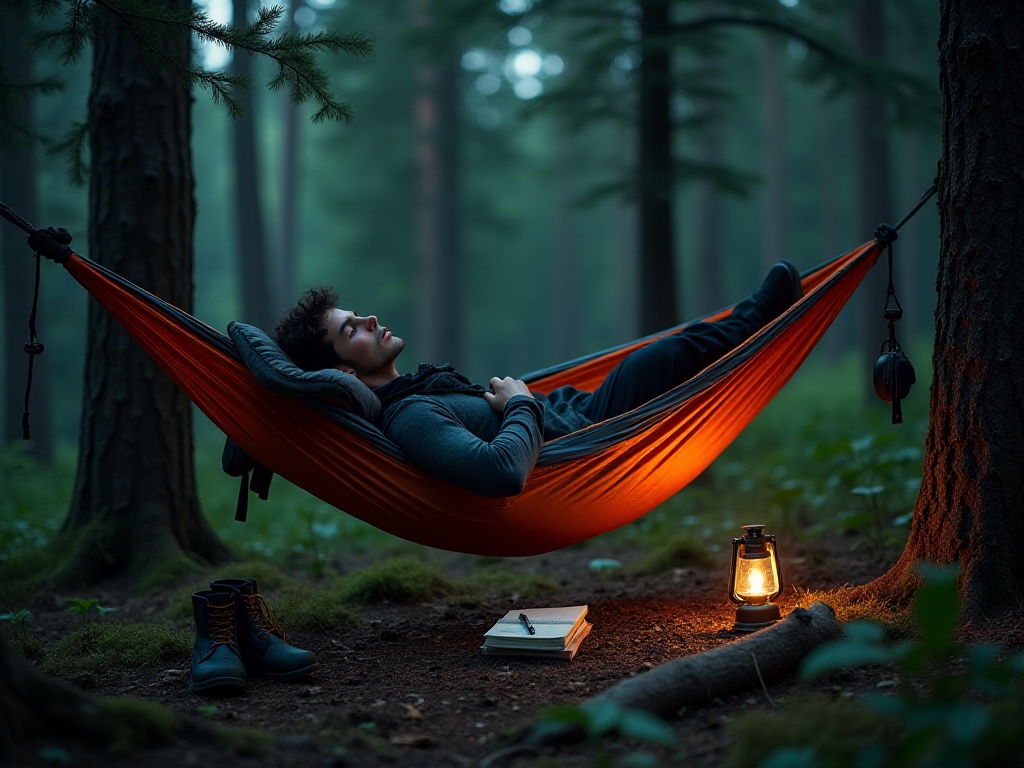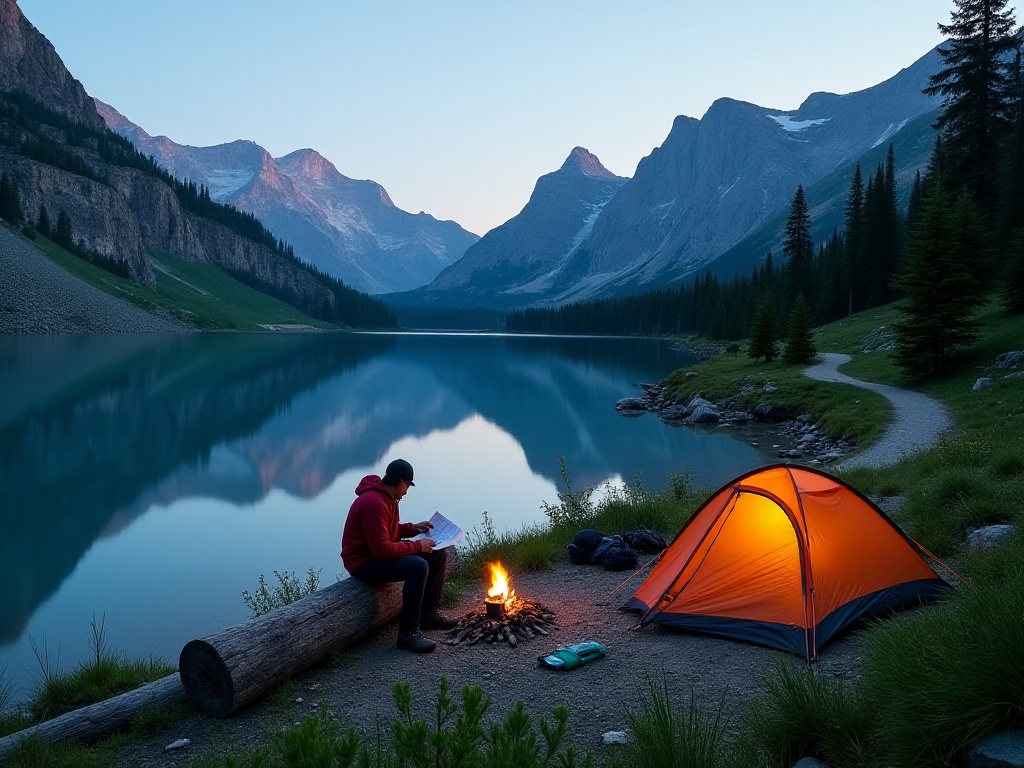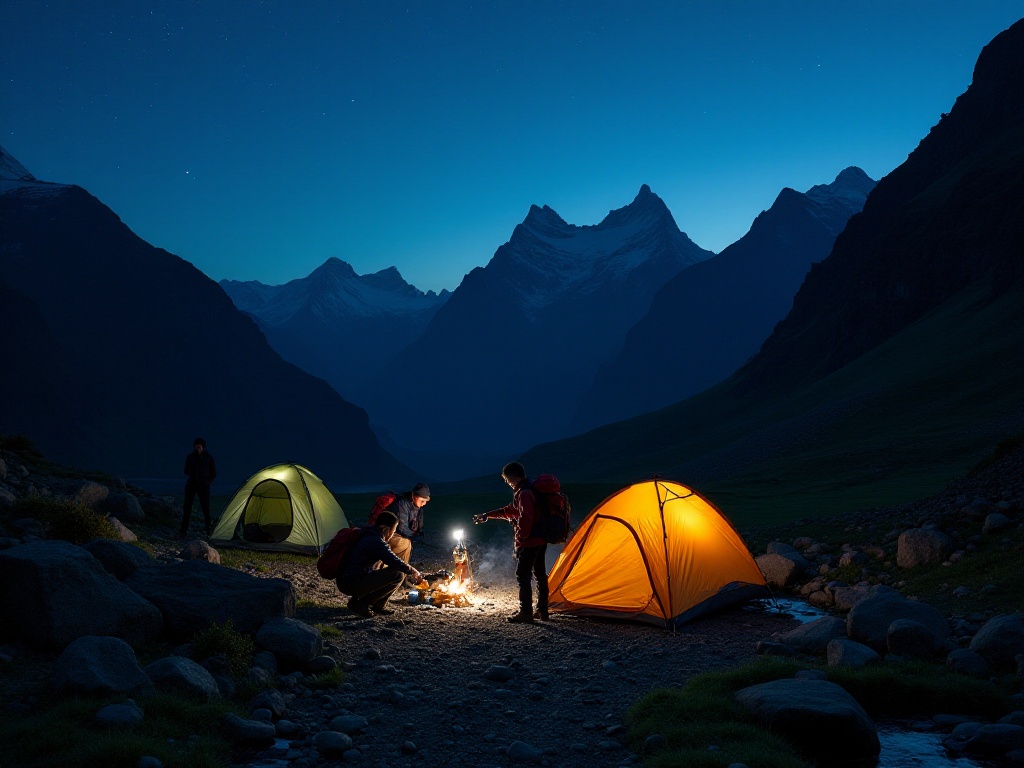Initial Motivation
I'm an ordinary post-90s person, working a nine-to-five job in an office building, repeating the same life pattern every day. Subway, workstation, takeout, overtime - the daily routine made me feel suffocated. On weekends, I would lie in bed watching travel vloggers' videos, envying their amazing experiences around the world. After working for several years, I began to feel a strong sense of fatigue with life, always feeling that something was missing.
One day in early 2023, I came across a video of a backpacker meditating in a temple in Chiang Mai, Thailand. At that moment, I suddenly realized that perhaps what I needed was exactly this kind of complete change. So I made an important decision - to quit my job, put on a backpack, and spend three months exploring Southeast Asia.
To be honest, when I first told my parents about my plan to go backpacking, they thought I was crazy. In their minds, traveling abroad meant joining tour groups to shop at malls and check off tourist attractions. But what I wanted was a genuine travel experience, not just a superficial sightseeing tour.
Backpacking is a special way of life. It doesn't require luxury hotels, Michelin restaurants, or shopping lists. You only need a backpack with the most basic necessities. Stay in youth hostels full of young people's energy, take public transportation that locals use daily, enjoy authentic food at street-side shops, and experience foreign life in the most local way.
Preparation
Although backpacking gives the impression of spontaneity, it actually requires thorough preparation. I spent an entire month preparing, researching guides, planning routes, and preparing equipment.
Choosing a suitable backpack is one of the most important preparations. I remember comparing different outdoor brands repeatedly and even trying on more than a dozen different models in physical stores. I finally settled on a 45-liter backpack, which was just right. A larger backpack would tempt you to pack more things, leading to excessive weight; a smaller one wouldn't fit the necessities. The backpack I chose had an ergonomic design, a very comfortable carrying system, and excellent waterproofing. The side of the backpack also had a quick-access zipper design, convenient for taking out cameras and water bottles.
When preparing luggage, I deeply understood the importance of minimalism. When I first started packing, I wanted to bring half of my household items. But after repeated screening, I only kept the most necessary items: several quick-drying clothes, a pair of durable hiking shoes, portable toiletries, common medicines, power adapters, power banks, etc. All items together were controlled within 12 kilograms, making it easy to handle long walks.
Route planning was also an aspect that needed careful consideration. My itinerary started from Bangkok, Thailand, then to Chiang Mai, followed by Vientiane, Laos, then to Siem Reap, Cambodia, and finally to Ho Chi Minh City, Vietnam. This route design was well thought out. First, these cities all have mature backpacker cultures, with many affordable youth hostels and backpacker gathering spots. Second, transportation between these places is very convenient, easily accessible by bus or train. Most importantly, these places are relatively inexpensive, very suitable for long-term travel on a limited budget.
Before departure, I also specifically learned some basic English conversation and local common phrases. Although professional fluency wasn't necessary, being able to say "hello," "thank you," "sorry" and other basic phrases could make communication during the journey smoother. I also downloaded offline maps, translation software, booking apps, and other practical tools to prepare for various possible situations.
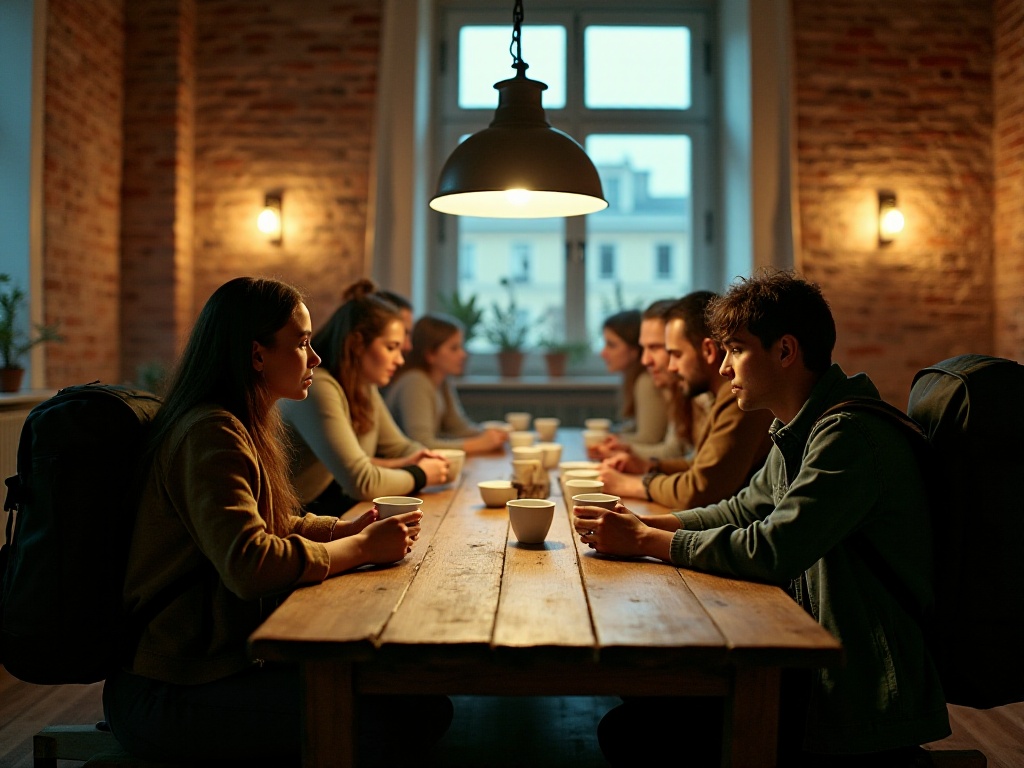
Deep Experience
After actually starting the journey, I found backpacking far more interesting than imagined. In a youth hostel in Chiang Mai, I met backpackers from around the world. The most memorable was Emma, a British girl who had just graduated from Cambridge University and decided to take a year-long Asian trip before entering the workforce. We often cooked together in the hostel's communal kitchen, sharing food from our respective countries and chatting late into the night.
There was also Mr. Lee from Korea, who was originally an executive at a large company in Seoul, earning tens of millions of won annually. But at the peak of his career, he suddenly realized he wasn't happy, so he quit his job and began a journey to find life's meaning. He told me that during his travels, he found long-lost peace and happiness.
The most surprising encounter was with a German couple who ran their travel blog and video account while traveling. Through them, I learned about the concept of "digital nomads" - a lifestyle of moving freely around the world while working online. They had been living this way for two years and had visited more than 20 countries.
In Chiang Mai, I participated in a three-day Thai cooking course. Not a one-day tour type experience, but really learning Thai cooking techniques from local chefs. From buying fresh ingredients at the morning market, to learning about various spices, to mastering heat control and seasoning, every detail gave me a deeper understanding of Thai food culture.
In Vientiane, Laos, I had one of my most memorable experiences. That morning, I was eating Lao noodles at a street stall, and the owner was a lady in her 50s who chatted with me in broken English when she saw me eating alone. Upon learning I was a backpacker, she warmly invited me to her home. Thus, I spent an entire day with an ordinary Laotian family.
In the morning, going to the market with her, I learned how lively the Laotian morning market is. Various vendor calls echoed back and forth, fresh vegetables and fruits piled like small mountains. The lady taught me how to pick the freshest lemongrass and lime, telling me that the soul of Laotian cuisine lies in these spices.
At noon, I learned to make Laotian spring rolls with her. Different from Vietnamese spring rolls, Laotian spring rolls have simpler fillings but taste just as good. She also taught me how to make the perfect dipping sauce, with just the right balance of sour, sweet, and spicy. While making spring rolls, she told me about Laotian customs and culture. Although there was a language barrier, gestures and expressions conveyed more information.
In the evening, the whole family went for a walk by the Mekong River. At sunset, many locals gathered by the river - aunties doing square dancing, children flying kites, vendors selling skewers. We bought some grilled meat and a bottle of beer, sat on a bench by the river, watching the sunset over the Mekong River. That kind of leisure and contentment couldn't be found in any luxury hotel.
In Siem Reap, Cambodia, I chose not to visit Angkor Wat with a tour group. Instead, I rented a bicycle and spent three days slowly exploring this ancient city. Getting up at five in the morning to ride and watch the sunrise, watching the temples gradually reveal their outlines in the morning light; hiding from the heat in Angkor Wat's corridors at noon, carefully appreciating the story of each relief; waiting for sunset on Phnom Bakheng, watching the golden sunlight cover the entire Angkor city.
By the time I reached Ho Chi Minh City, Vietnam, I had completely adapted to the backpacker lifestyle. Every morning, eating a bowl of Vietnamese pho at a street stall, then wandering aimlessly through the streets, discovering interesting corners that tourist guides wouldn't mention. Like a coffee shop that had been run for three generations, where the owner slowly dripped Vietnamese coffee using traditional filters, the rich coffee mixed with the sweet aroma of condensed milk, leaving an unforgettable taste.
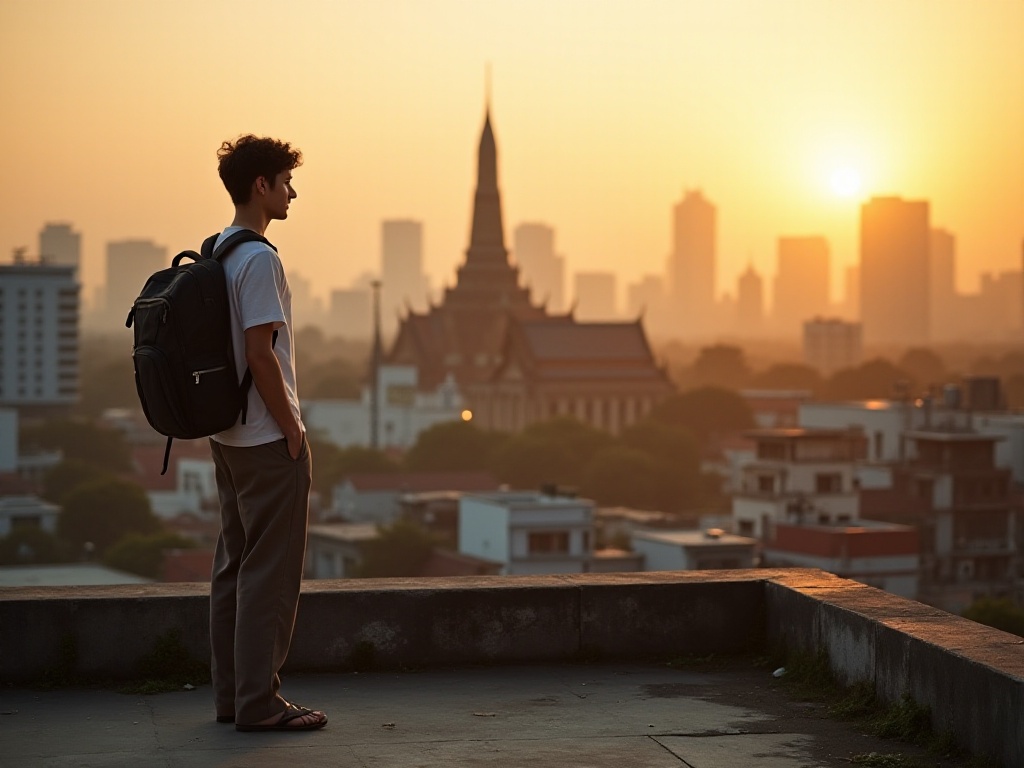
Gains and Insights
Three months of backpacking gave me many unexpected gains. The biggest change was in mindset. Before, I was always anxious and picky about many things. But during travel, I learned to take things as they come. Sometimes language barriers don't matter; smiles and goodwill can resolve awkwardness. Sometimes less-than-ideal accommodation doesn't matter; meeting interesting roommates is what's most important.
I also learned to live in the simplest way. Before departure, I always thought I needed many things to live well. But three months of travel made me realize that people actually need very few things. A backpack could hold all possessions yet allow me to live comfortably in foreign lands.
The most precious were the friends made along the way. Emma and I still keep in touch; she's now in Vietnam, continuing her Asian journey. Mr. Lee from Korea returned home and opened a small cafe, living the life he wanted. I still follow that German couple's travel blog; they're now in India, sharing new adventure stories.
These experiences gave me a new understanding of life. I discovered that life doesn't have to follow a predetermined track. Work, buying a house, marriage, having children - these so-called necessary life paths actually allow for different choices and paces. What's important is finding a lifestyle that truly suits you.
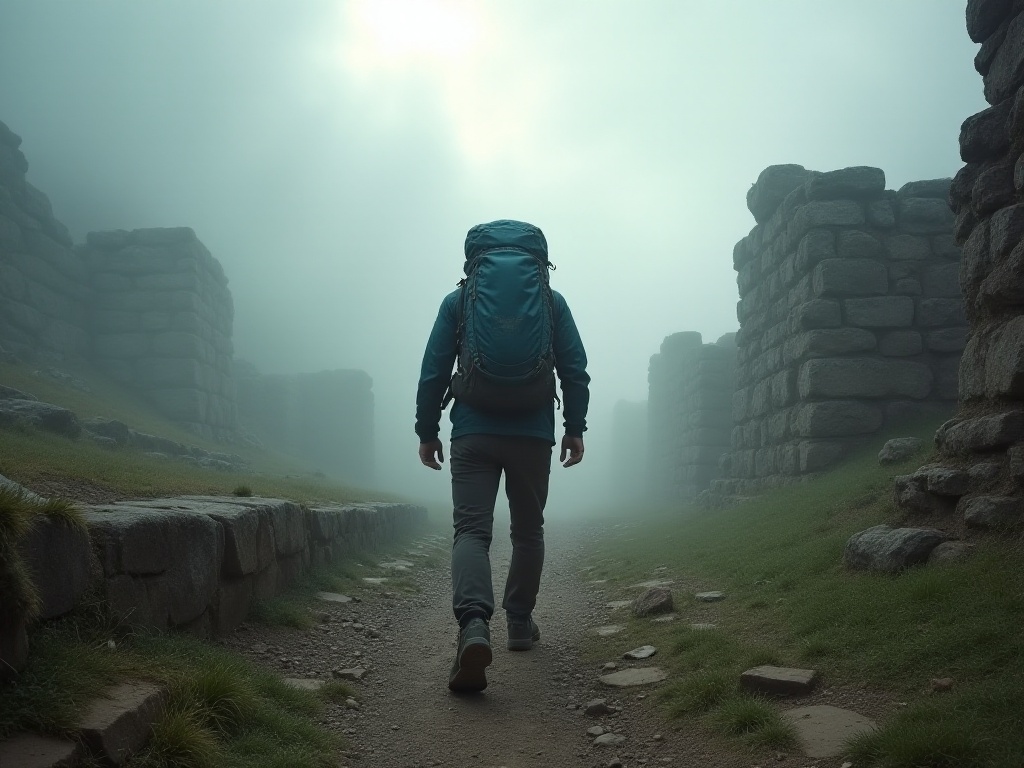
Practical Advice
After this trip, I summarized some practical advice that I hope will help friends who want to try backpacking.
First is budget control. In Southeast Asia, if planned properly, daily expenses are actually not high. Taking Chiang Mai as an example, a bed in a youth hostel dormitory only costs 40-60 RMB per night, and a decent single room is just 80-100 RMB. A meal at a local restaurant costs 20-30 RMB to eat well, street food is even cheaper at 10-15 RMB per meal. Transportation costs are also affordable; within cities you can use shared bikes or songthaews, and between cities you can choose night buses, saving both money and time.
Accommodation choice is crucial. I recommend mainly staying in youth hostels, not just because they're cheap, but more importantly because they're the best places to meet friends. When booking, pay attention to reviews, especially key factors like safety, hygiene conditions, and location. Generally, booking 3-5 days in advance is most suitable, as this timeframe allows you to find good prices without encountering fully booked situations.
Luggage preparation should be minimal. For clothing, recommend choosing quick-dry fabrics, making it convenient for hand washing - wash at night, wear the next day. Important items like passports, cash, and bank cards should be stored separately. Recommend carrying a small first aid kit including band-aids, fever medicine, gastrointestinal medicine, and other common medications.
Additionally, learn to protect your safety. Although Southeast Asia is generally safe, you should still follow some basic safety guidelines. Try not to go out alone at night, properly secure valuables, and avoid suspicious situations when encountered. Back up important documents electronically and store them in the cloud for emergencies.
Most important is maintaining an open and inclusive mindset. You'll encounter cultures and lifestyles completely different from your own. At these times, don't judge by your own standards, but try to understand and accept. Every place has its unique charm; the key is to discover and experience it with an open heart.
Backpacking is not just a journey, but a process of self-exploration and growth. It teaches you how to live independently, how to interact with strangers, how to find direction in uncertainty. When you truly let go of your burdens and open your heart, you'll find this world more wonderful than imagined.
Finally, I want to say that the meaning of travel isn't about how many places you've been to or how many photos you've taken, but about what you encountered on the road, what you learned, what changed. If you're also interested in backpacking, don't hesitate - pack your bags and start your own journey.


